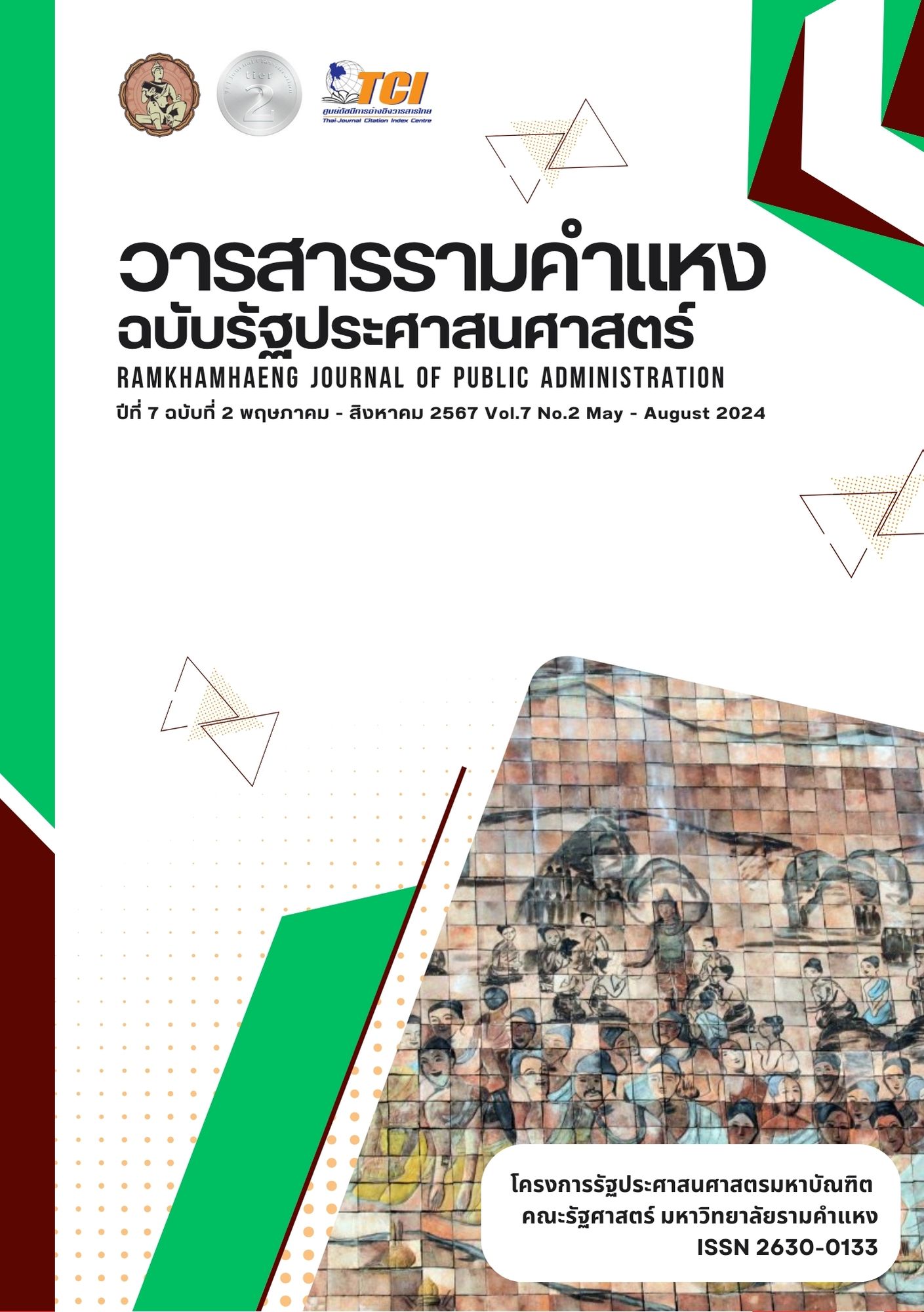Roles of the Central Islamic Council of Thailand and influences towards policies of political party
Keywords:
Central Islamic Committee of Thailand, Political policy formulation, Political partyAbstract
This research aims to (1) analyze the role and responsibilities of the Central Islamic Committee of Thailand from 1997 to 2023, (2) analyze the relationship and impact between the Central Islamic Committee of Thailand and the political parties, and (3) study the approaches of the political parties in aligning with the Central Islamic Committee of Thailand. This research is the mixed methods research. The study begins with qualitative research followed by quantitative analysis. Qualitative data was collected through in-depth interviews with specific informants, while quantitative data was gathered using a questionnaire.
Findings indicate alignment between qualitative and quantitative research, showing that the Central Islamic Committee of Thailand adheres to the roles and responsibilities outlined in the Islamic Organization Administration Act of 1997. The Committee maintains supportive relationships with politicians, wielding greater informal influence than formal authority. The study recommends that political parties follows the principle of Shura (the consultation) in addressing Islamic issues for the political parties.
References
ไพศาล เต็งหิรัญ (2563). ชูรอในอิสลาม: กรณีศึกษาการประยุกต์ใช้หลักการชูรอเพื่อการคัดเลือกกรรมการอิสลามประจำมัสยิดในกรุงเทพมหานคร. วิทยานิพนธ์ปรัชญาดุษฎีบัณฑิต, มหาวิทยาลัยสงขลานครินทร์.
วสันต์ จิสวัสดิ์. (2563). ความไว้วางใจทางการเมืองของคณะกรรมการอิสลามประจำจังหวัด ในพื้นที่ 3 จังหวัดชายแดนภาคใต้ที่มีต่อการบริหารราชการส่วนภูมิภาค. วารสารมนุษยศาสตร์และสังคมศาสตร์ มหาวิทยาลัยราชภัฏอุบลราชธานี, 11(2), 164-177.
สำนักงานคณะกรรมการกลางอิสลามแห่งประเทศไทย. (2564). ข้อมูลเกี่ยวกับคณะกรรมการกลางอิสลามแห่งประเทศไทย. ค้นเมื่อ 26 พฤษภาคม 2564, จาก https://www.cicot.or.th/th/about
อาดือนัน มะดอแซ และอับดุลเลาะ ยูโซะ. (2559). การมีส่วนร่วมในทางการเมืองของผู้นำศาสนาในจังหวัดปัตตานี. วารสาร AL-NUR บัณฑิตวิทยาลัย มหาวิทยาลัยฟาฏอนี, 11(20), 181-195.
อำนวย เซลามัน และภูริชญา วัฒนรุ่ง (2557) มาตรการทางกฎหมายในการส่งเสริมกิจการศาสนาอิสลามในประเทศไทย ตามพระราชบัญญัติการบริหารองคกรศาสนาอิสลาม พ.ศ. 2540. วารสารกฎหมาย, 7(14), 160-176.
Black, A. (2011). The history of islamic political thought: from the prophet to the present. Edinburgh: Edinburgh University Press. Retrieved 31 August 2021, from http://www.jstor.org/stable/10.3366 /j.ctt1g0b63h
Hirschkind, C. (1997). What is political Islam?. Middle East Studies Networks: The Politics of a Field, 11(1), 1–14.
Turner, J. (2009, August 3). Islam as a theory of international relations?. E International Relation: The University of Surrey.
Yamane, T. (1973). Statistics an introductory analysis. New York Harper & Row.
Yusuf, I. (2010). The Role of the Chularajmontri (Shaykh al-Islam) in Resolving Ethno-religious Conflict in Southern Thailand. American Journal of Islamic Social Sciences, 27(1), 31-53.
Downloads
Published
How to Cite
License
Copyright (c) 2024 Chanon Dalai

This work is licensed under a Creative Commons Attribution-NonCommercial-NoDerivatives 4.0 International License.



